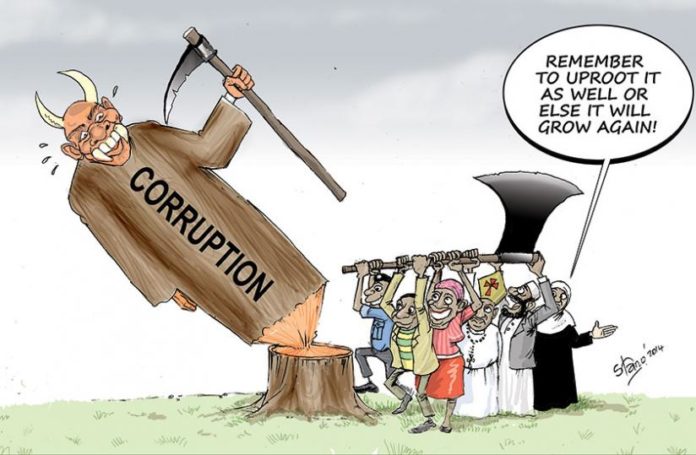By: Christian Conteh
Yahya Jammeh’s 22-year rule (1994 to 2016) weakened state institutions and led to the perpetual mismanagement of state resources for the benefit of himself and a very small class of political cronies.
The impact of Jammeh’s government corruption damaged the national economy, which resulted in poor social service delivery, poor infrastructure, unequal access to health services and a proliferation of crime and illegal migration of young people, especially in rural areas.
Although the 2016 election of Adama Barrow demonstrated the public’s will to oust Jammeh and reform the state, Barrow’s presidency has experienced slow progress in the fight against corruption. His political opponents have constantly questioned the political will towards necessary institutional reforms.
The absence of proper checks and balances within the three arms of government has resulted in a non-transparent political system that promotes corruption and wasteful use of public resources, his opponents claim.
It is against this backdrop that Public-Private Integrity (PPI) the premier anti-corruption civil society organization in The Gambia has on the occasion of International Anti-Corruption Day stated in its statement that The Gambia is backsliding on its dedication to enforce and observe anti-corruption standards and characteristics.
A statement from the group states that PPI with guidance from the United Nations Office on Drugs and Crime (UNODC) and the United Nations Convention Against Corruption (UNCAC) Coalition Vienna Hub, took the initiative to review the books and applicable literature about The Gambia and to supply evidence that The Gambia has performed poorly in enforcing anti-corruption principles and characteristics from 2005 to 2021.
PPI says it is deeply concerned that the inconsistent behaviour of the executive, parliamentarians and non-elected public officials toward combating corruption show that individuals and groups in public office are enablers of corruption in The Gambia.
It, however, acknowledges and admires the efforts via means of public office holders to draft the Anti-Corruption Bill, a Mutual Legal Assistance Bill and enter into several bilateral settlements on anti-corruption and crime.
“PPI has taken note with deep concern that the failure of the Gambian authorities to operationalize an Anti-Corruption Commission since 2012 is an indication that The Gambia is backsliding on its commitments to fight corruption. PPI acknowledges and admires that the Government of The Gambia is committed to building a democratic country that affirms and appreciates the rule of law.”
However, the group says despite the achievements, there are deficiencies in policy, legal framework and procedure of corruption prevention, stolen assets recovery, law enforcement and international cooperation mechanisms. Such deficiencies it notes encourage the poor discharge of duties, functions and prescribe powers of public officeholders.
Conclusively, “PPI wishes to encourage the Government of The Gambia to take every measure at its disposal to domesticate the backlog of general agreements between states about basic principles and procedures to fight corruption at the national level”.
Addressing corruption and mismanagement of public resources will work towards making the Gambian economy more transparent, which will contribute to improving the national Gross Domestic Product (GDP) and provide adequate resources to address pressing social and economic needs such as poverty, inequality and injustice.




